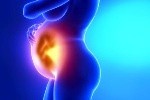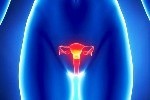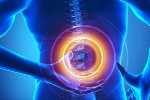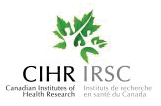How Effective Is Herbal Medicine?
The modern use of plants as medicines is based upon thousands of years of empirical research. Professional herbalists add to this information with well observed case histories noting the effects
of particular plants. Lots of new information is also available from the worlds of chemistry and pharmacology.
Whilst very little research has been carried out by herbalists themselves, they have been very good at assimilating new information and adding this to their traditional knowledge base. Huge advances
in organic chemistry over the last century mean that many of the constituent chemicals of medicinal herbs have been identified and their actions investigated.
For hundreds of years it has been known that the bitter tasting aromatic herb chamomile has many useful applications. These include its use as an antispasmodic and anti-inflammatory for the digestive
system. We are now able to say that the bitter taste is due in part to the presence of anthemic acid, and that the volatile oil that gives chamomile its distinctive aroma includes the components
spiroether and azulenes. We are further able to demonstrate that spiroether is a strong antispasmodic, that azulenes can have anti-inflammatory action, and similarly to explain the other healing
effects of this herb in terms of the chemicals of which it is composed.
Very recent research is also demonstrating that although herbs often contain only small amounts of these pharmacologically active chemicals, that they work synergistically together. That is, that a
trace of one chemical will increase by many times the effectiveness of another.
The chemical analysis of herbs is also useful in identifying possible herb/drug interactions – herbalists are constantly updating their information in this area.
Clinical trials are very expensive to fund, and there have been few clinical trials yet of the way in which medical herbalists actually work – that is with long consultations and the use of
prescriptions containing a number of herbs. There have, however been lots of trials of the effectiveness of individual herbs. A recent book by the herbalist Kerry Bone lists eight positive clinical
trials on chamomile testing its anti-diarrhoeal, anti-inflammatory, antispasmodic and sedative effects. Some herbs have had many times more clinical studies made into their effects.
Over the last 20 years orthodox physicians have generally become more accepting of the value of both medical herbalists and of the plant remedies that they use. A small number of medical herbalists
are employed within the NHS, either in specialist outpatient departments or in doctors' surgeries. Other doctors refer patients on to herbalists and several universities now offer postgraduate
training in herbal medicine for doctors.
Once thought ready to be consigned to history, herbal medicine and herbal remedies are more studied and researched in universities than at any time in the past.
Contact Us
Chalmers Medical Building
328 Hwy 7 East Suite 201,
Richmond Hill ON L4B 3P7
Tel: 416 399-3888
E-mail: info@aahclinic.com
Conditions Treated
Effective Herbal Therapy for Inflammatory Bowel Disease
NO Surgery!
Carolyn XU Treats Ulcer Colitis Successfully
Considering Therapy?
Resource Links
References
Donation
Great things happen when you put your heart into it.
Click Here to Send us your request
Tips
Questions about your first appointment or if your insurance will cover the cost? Find more information below.















